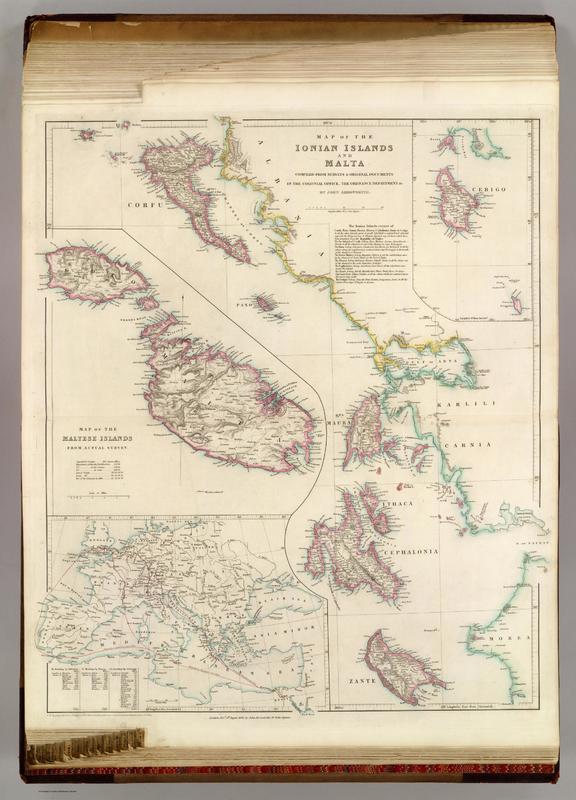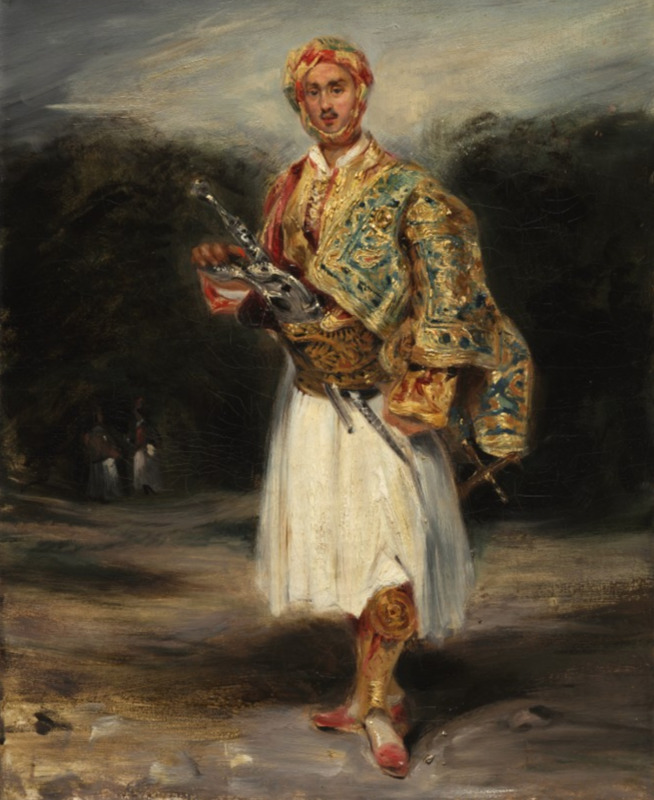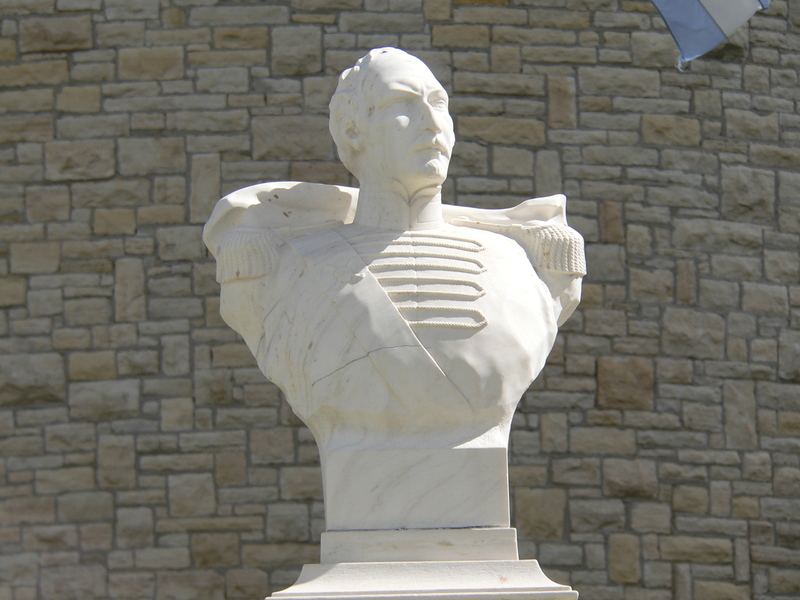Preachers and Politicians: America’s “Greek Fever”
Separated from many of the world’s monarchies, the United States found itself in a position in which enlightenment liberalism was not only tolerated, but actively encouraged and expected by the greater society. This cultural norm within the United States helped stoke passions for the Greeks fighting against the Ottoman Empire. Many Americans during the early 1820s saw the Greeks as “kindred spirits” of sorts, as two nations who fought against a despotic government in the pursuit of liberty. It was even popular to say at the time that the provisional Greek constitution of 1822 was directly modeled on the American one, although this is debatable, and likely an exaggeration made by philhellenic Americans to garner support. The combination of pro-Christian fervor and upholding of liberal ideals led some Americans to hold contradictory views on how the rest of the world’s powers should be responding to what they saw as a crisis unfolding in Greece. Americans found themselves both criticizing European powers such as Britain and the members of the Holy Alliance for not doing enough for the Greeks as well as fearing that wider European intervention would lead to the squashing of Greek democracy. Even immigrant communities who were marginalized in their homelands, such as Irish-Americans, would find themselves finding sympathy with the Greek rebels. Women, too, were drawn to what was seen as the plight of the Greeks, and they made some of the largest donations to displaced Greeks of any American demographic, usually through the production of clothing and the organization of fundraising events. These women were generally white and upper class, and wielded considerable influence in their communities, although lower-class and middle-class women also participated in the production of clothing for Greek families.
The American intelligentsia of the early 19th century often saw the republican form of government in which they participated as a continuation of the traditions set forth by the ancient Greeks and Romans. For this reason, Americans saw themselves as a country that owed the Greeks and their historical achievements a debt. This romanticization would even extend to Greek revolutionary figures, and it gave rise to such outlandish tales as one in which Demetrios Ypsilantis (Greek: Δημήτριος Υψηλάντης), the brother of Alexandros Ypsilantis (Greek: Αλέξανδρος Υψηλάντης), traveled to America during the Revolutionary War and fought at the battle of Monmouth. This story was cited in American biographies of Demetrios, despite the fact that Demetrios Ypsilantis was born 15 years after the battle took place. Along this line, many early supporters of the Greeks in the United States had backgrounds studying classical history, and therefore called upon the antique past of the Greeks when making public statements. This romanticized vision of ancient Greece captured the imagination of many Americans, and drove the creation of philhellenic societies and newspapers across the country, such as the notable Albany Argus of Albany, New York.
Not everyone in the United States held such a high opinion of the Greek war, however. For example, many politicians - including the President, James Monroe - were known to have tiptoed around the issue of Greece. This earned scorn from much of the populace, and many letters urging the government to step in and directly aid the Greeks were sent to all levels of administration, locally and federally. Government officials in the United States had good reason to stick to a solely cordial relationship with the Greek provisional government. Firstly, the United States was an important trading partner of the Ottoman Empire, as American trade accounted for the second-largest amount of goods imported by the Empire, just behind Great Britain. Siding fully with the Greeks would have created a mercantile emergency that the United States was not willing to cause, and doing so would have also potentially harmed Americans staying inside the Ottoman Empire. Another reason for American caution rested in the fact that American leadership was incredibly fearful that intervention would entangle the country in European affairs and conflicts. The Napoleonic Wars - as well as their North American extension, the War of 1812 - were still fresh in the minds of many Americans in the early 1820s. A European war could have been perceived as Americans trying to establish a liberal regime on a continent that was constantly on high alert for revolutionary activity. This decision to be far removed from European politics made it so that the United States never directly interfered on behalf of the Greeks, despite the enthusiasm from its population.
Michigan also established a surprisingly deep connection with the Greek War of Independence during and after the course of the conflict. Like in other parts of the United States, many people, especially those with an education and passion for Classical Greece, were stirred by the thought of a new Greek nation on the map. Because of this “Greek Fever,” some Michiganders would recognize and support the Greeks in various ways. For example, the wealthy James R. Lieb distributed around $8547 worth of supplies to the Greek cause. In 1824, the Detroit Gazette would even advocate for the formation of a thespian society to raise funds for the Greeks. Then, of course, there is Washtenaw County. The land for the creation of Ypsilanti was specifically set aside by the first chief justice of the Michigan territory, Augustus Brevoort Woodward, who was an ardent classical scholar. Woodward declared that the town should be named after Demetrios Ypsilantis, a noted general of the Greek War of Independence who had begun to build up a considerable legend among Americans. The bust of D. Ypsilantis that is now located at the water tower in Ypsilanti was sculpted by Christopher Nastos and presented in 1928. Washtenaw County contains yet another callback to the Greek War of Independence: Scio Township. The name of the township is debated, but the leading theory seems to be that the name comes from the French name of the Greek Island of Chios (Greek: Χίος). This is thought to be the case because the township was established following the Greek War of Independence, and the American public had a certain fascination with the gory details of the war, particularly the sack of Chios by Ottoman forces. Another idea is that French, the language of diplomacy, would be the way in which information about the Greek war would be filtered down to most Americans.
This image shows a white marble bust of Demetrios Ypsilantis. He is wearing the formal uniform of an early 19th-century general, complete with a sash, epaulettes, and a high collar. Demetrios sports a mustache as well, and his head is tilted so that he appears to be looking towards the right from the perspective of the viewer. Demetrios Ypsilantis was a prominent figure in the Greek War of Independence, but he arguably gained even more fame in the United States, where he was also revered as a hero by many. The town of Ypsilanti, Michigan, where this bust is located, is also named in honor of the Greek general.

Keeping the Window Shut: Britain’s Diplomatic Maneuvers

Beyond Politics: Philhellenism & the Public

